#한강
Explore tagged Tumblr posts
Text
난지 한강 공원 주차장의 악몽| 이중 청구와 불법 주차 딱지 | 주차 요금, 주차 딱지, 난지 한강 공원, 주차 문제, 해결 방안
난지 한강 공원 주차장의 악몽| 이중 청구와 불법 주차 딱지 | 주차 요금, 주차 딱지, 난지 한강 공원, 주차 문제, 해결 방안 주말 나들이, 난지 한강 공원만큼 좋은 곳이 있을까요? 푸른 잔디밭과 시원한 강바람, 다채로운 행사까지 완벽한 휴식을 알려알려드리겠습니다. 하지만, 난지 한강 공원 주차장은 즐거운 나들이를 망치는 악몽과 같습니다. 최근 이중 청구와 불법 주차 딱지 사례가 끊이지 않고 발생하고 있습니다. 주차 요금을 정상적으로 지불했음에도 불구하고, 다시 한번 요금을 청구 당하거나, 주차 공간이 부족하여 불법 주차를 한 뒤 딱지를 떼는 경우가 허���합니다. 이러한 문제는 주차 시스템의 부실함과 관리 부재에서 비롯됩니다. 혼잡한 주차장 관리에 인력이 부족하고, 시스템 오류로 인해 이중 청구가…
0 notes
Text

한 강 Han Kang – awarded the 2024 Nobel Prize in Literature – was born in 1970 in the South Korean city of Gwangju before, at the age of nine, moving with her family to Seoul. She comes from a literary background, her father being a reputed novelist. Alongside her writing, she has also devoted herself to art and music, which is reflected throughout her entire literary production. (x) more at wiki
#congratulations#nobel prize#literature#korean literature#한강#han kang#writer#novel#소년이 온다#채식주의자#south korea#korean#2024#자랑스럽습니다!#novelist#한승원#노벨문학상#book#books
104 notes
·
View notes
Text
다음에는 오후부터 김밥사와서 저-앞에 자리 잡고 누워 보자는 촛불요정님. 내년에는 한강에서 푸른 하늘도 붉은 노을도 반짝이는 불꽃도 보게 생겼네.
35 notes
·
View notes
Text


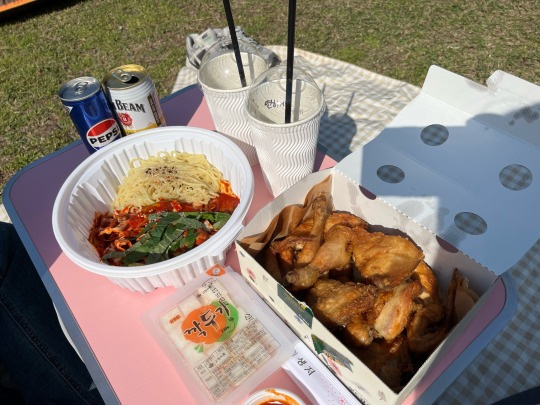
좋은 날, 한강 피크닉 🧺🍓🍑🍋🍇🌿🌳
바람이 너무 불어서 앞 자리 텐트가 뒤집어지고 난리부르쓰 😖
겁쟁이 송태양이는 무서워서
경아누나 무릎에서 떠나질 못 했다고 한다…😵💫
16 notes
·
View notes
Note
can i ask how many languages you know? u mentioned enjoying han kang's the vegetarian in korean and not the translation so i was wondering if u could read korean.
Hi, thanks for asking! I get this question a lot, haha. Usually I say I’m functionally bilingual (French + English) with a dozen-odd languages and dialects rotating in the background. My experience in the fields of linguistics and translation studies means that I can understand a lot more about how languages work, and intuit meanings, without having to specifically study each individual language. This is pretty much the only “cheat code” when it comes to learning languages. Also, I studied Latin and Ancient Greek for many years, which helped a lot with the descendants thereof.
I can read Korean pretty well (I studied it formally for about two years and have been steadily amassing a collection of literature ever since) but always keep a dictionary on hand just in case. 한강 is one of my favourite contemporary Korean writers, in no small part because I love her dreamy, unsettling, surrealist prose style, so naturally I was disappointed in the English translation of ‘채식주의자,’ which “beautified” the text to make it more palatable to a Western audience. Personally, I will always prefer a literal translation over a loftier interpretation, even if that means the resulting product isn’t as “pretty” or even as popular.
My original review of “The Vegetarian” (tr. Deborah Smith) was preserved on my blog.
10 notes
·
View notes
Text
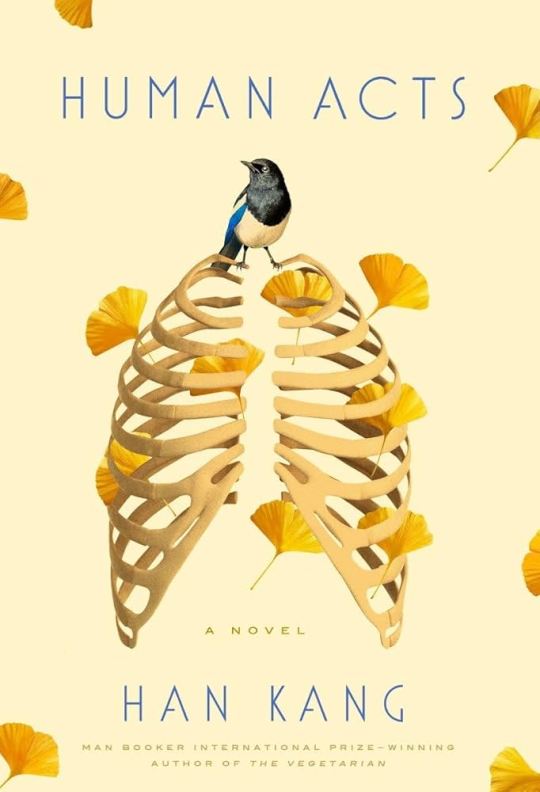
#dark academia#light academia#academia#literature#homemade#dark acadamia aesthetic#books#han kang#kang han#human acts#한강#한강작가#소년이 온다#asian author#aapi authors#currently reading
4 notes
·
View notes
Text
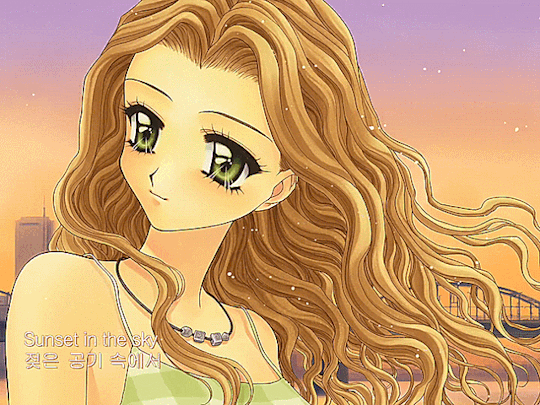

◡̈⃝✩‧₊˚₊·—̳͟͞͞♥ ༊*·˚OuiOui (위위) - 한강 (River) ༊*·˚
#위위#ouioui#한강#River#kpop#k-pop#kindie#k-indie#indie#90s#1990s#80s#1980s#yue#blueny#meijee#Wilcox#INPLANET MUSIC#R&B#soul#animecore#otakucore#weebcore#webcore#nostalgiacore#retro anime#anime retro#gif#my gifs#kawaiicore
99 notes
·
View notes
Note
What is your opinion about Han Kang winning the 2024 nobel prize in literature? Is she the best representative of Korean literature nowadays?
This took a while to answer, sorry nonnie. I wanted to try making this as informative and helpful as possible- plus I was(and still am) kinda busy with preparing for college entrance stuff😅.
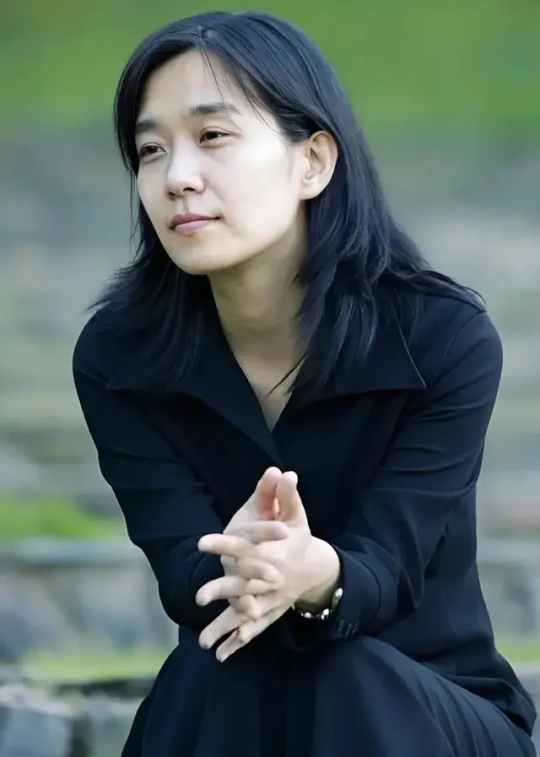
So!!! To answer your question:
The Korean author 한강(Han Kang) mainly writes fiction about human life and resisting violence, or historical fiction dealing with Korean modern history; I'm gonna focus more on the historical fiction side here though.
Her historical novels focus on the mental & physical scars left on Korea during the tumultuous period right after the Japanese Colonial Period & the Korean War, through the eyes of ordinary people whose lives were destroyed by each event. So Han Kang winning the Nobel Prize is super meaningful to us, because it means the world is taking an interest in Korean history, and the pain we went through.
There's a well-known quote in Korea; it was said by the Japanese Colonial Period Independence Activist & leader of the Provisional Korean Government, 김구(Kim Gu).
"오직 한없이 가지고 싶은 것은 높은 문화의 힘이다. 문화의 힘은 우리 자신�� 행복하게 하고, 나아가서 남에게 행복을 주기 때문이다."
("The only thing I wish we had limitlessly is high power of culture. For the power of culture brings joy to ourselves, and furthermore gives joy to others.")
This quote means cultural power is crucial in drawing in the world to our side. If other countries enjoy our culture, they'll also take an interest in understanding us, which will in turn lead to them taking an interest in our wellbeing & listening to our voice. In fact, it's happening right now! People are learning Korean for K-Pop and K-Dramas! People are getting interested in Korean culture!! Han Kang won the Nobel Prize for books about our history!!!
So, yeah. I think Han Kang's Nobel Prize is very important to Korea, because we're now one step closer to the world acknowledging the sufferings of our country that previously went unrecognized.
And yes, I think Han Kang's novels are a good representation not just of Korean literature, but of the spirit of Korea as well! A number of her works describe some horrific incidents in our history, and others present a calm sort of criticism on the violence of society. <채식주의자(The Vegetarian)>, one of her better-known works of fiction, is a neat slightly grotesque(?) example of this recurring theme of advocating for peace and resisting violence. (This one isn't about history BTW! It's about a woman resisting the lifestyle of her secular family.)
Both history and peace are especially important themes to Koreans. History, because we're always striving not to let it repeat & not to let unsolved disputes be forgotten. Peace, because we're in constant danger, from being the world's one and only divided country, among other things.
BUT, as many Koreans are pointing out, Han Kang is- though undisputedly very talented- one of many amazing writers in Korea. In fact, I've even heard people say up to 60~70% of Korean authors are likely capable of winning the Nobel Prize, if only their work would be translated properly. I- and a lot of others- think Han Kang's success on the international level is not only thanks to her own stellar talent, but also to her translator, Deborah Smith. Deborah Smith has been translating Han Kang's works for a while now, and her thoughtful translations have been much appreciated. NGL, I've seen so many Korean-to-English translations that suck so bad, so seeing Korean literature get translated by someone who very obviously cares a lot about the text? It was like a breath of fresh air after being stuck in the school auditorium for two hours. (And yes, I have just walked out of the school auditorium after being stuck there for two hours.)
This is a lil besides the point, but this is part of why I'm planning to start a Korean literature YouTube channel after I graduate. So many great works of Korean literature either have low-quality translations or don't have any at all, and I want to introduce those works to the wider world properly.
I still have a few months to go till graduation though, so in the meantime, I hope Han Kang's works, at least, get all the well-earned love and respect it deserves.
Thanks for the ask nonnie, and sorry again for the late answer! Feel free to ask if you have any additional questions- though I'm gonna be honest, I'll probably be late in answering those as well.😅 College entrance preparation is hard haha.
-Lilly xx
#this was fun to answer#lots to research & lots to think about yknow?#I'm still v young tbh so idk if my phrasing is easy enough to understand or if I represented Han Kang well enough#but I certainly tried my very best#thank you for the ask nonnie. I thrive on talking about Korea and/or literature and you combined both#Lilly's Korean stuff🇰🇷#han kang#한강#nobel prize#nobel literature prize#reading stuff#Lilly gets an ask
8 notes
·
View notes
Text

#han kang#writer#author#nobel prize#south korean#nobel prize in literature#asian#한강#kang#nobel prize winner
8 notes
·
View notes
Text
오늘의 문장
인내와 체념, 슬픔과 불완전한 화해, 강인함과 쓸쓸함은 때로 비슷해 보인다. 어떤 사람의 얼굴과 몸짓에서 그 감정들을 구별하는 건 어렵다고, 어쩌면 당사자도 그것들을 정확히 분리해내지 못할지도 모른다고 생각했다.
한강의 ‘작별하지 않는다’ 중에서
3 notes
·
View notes
Text


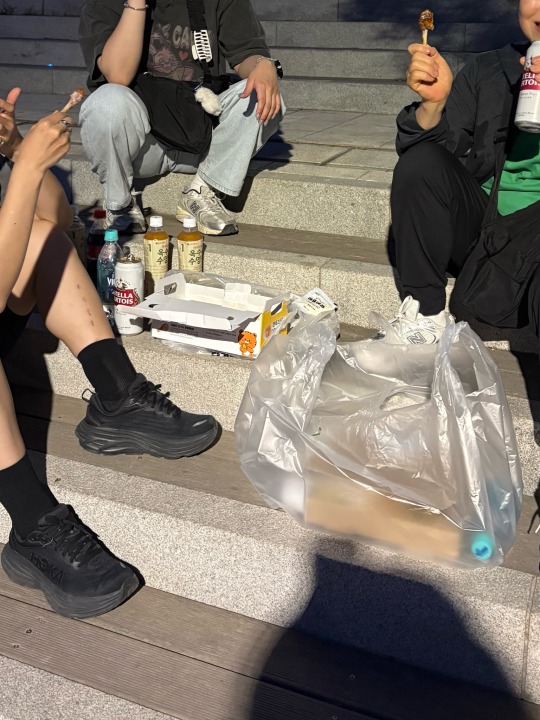

한강 근처에 산지 10년이 넘었는데 치맥은 처음이라는 촛불요정님. 다음에 이 자리에서 무엇이든 먹게 된다면 젓가락을 꼭 챙겨달라고 해요 우리. 🥢🥢🥢🥢
11 notes
·
View notes
Text


January 4, 2024.
Yeouido, Seoul.
16 notes
·
View notes
Text










2 notes
·
View notes
Text
i just picked up 소년이 온다 by 한강 and i think it's a little harder than i expected but still sooo worth it. kinda hyped for this book
3 notes
·
View notes
